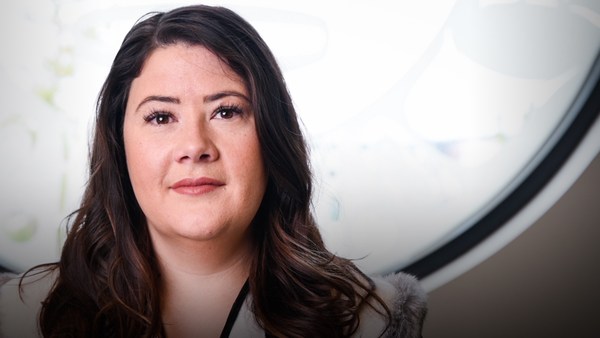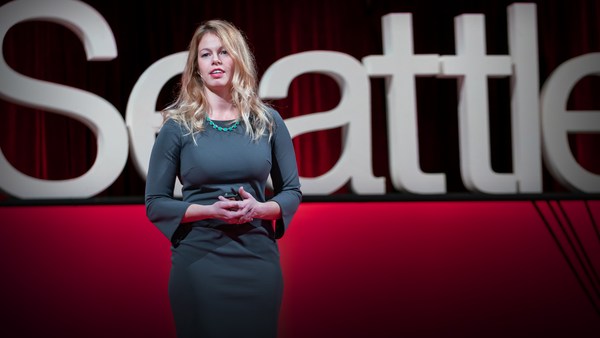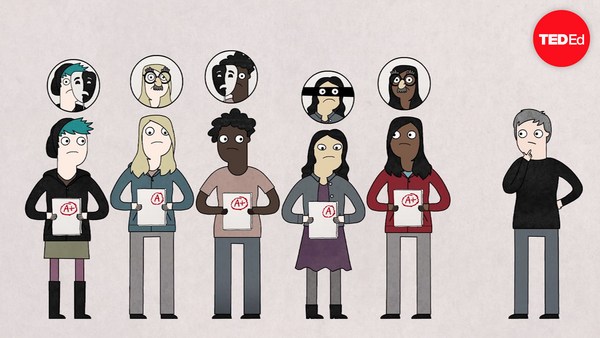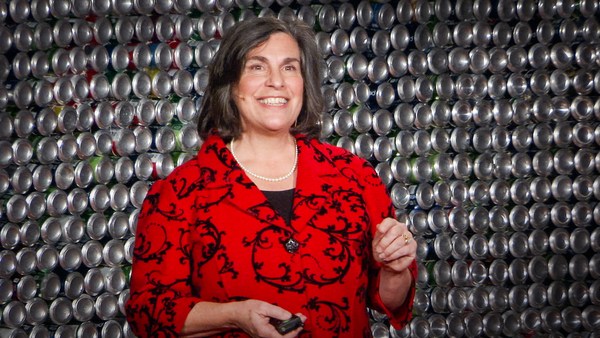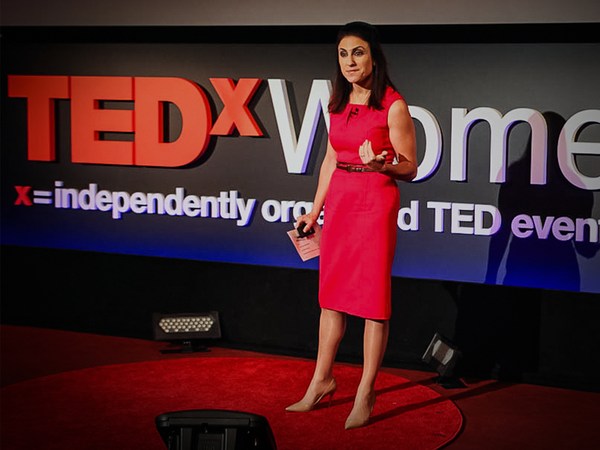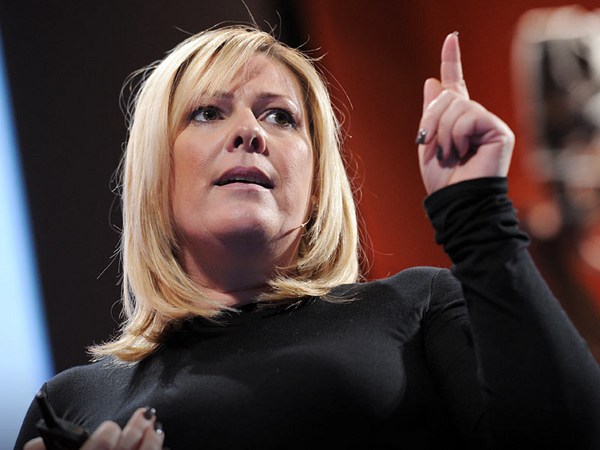My parents were refugees of communism. Growing up, I watched my mom and dad work two full-time jobs without ever complaining, so my siblings and I could live a better life than they did. I was proud to be their daughter. And I understood the immigrant part of my identity well.
The female part of my identity, however, was much harder for me to own. I never wanted to draw attention to my gender, because I was afraid I wouldn’t be taken seriously as a CEO. So I focused my energy on the things that I thought were important, stuff like making my team laugh. I remember I would painstakingly write and rehearse jokes before every all-hands. Or I'd be the first one in the office and the last one out, because I thought that these things mattered.
When I was six months pregnant, one of our large competitors reached out, wanting to talk about acquiring us. Every startup wants the option to be bought, but it really got under my skin when during conversations with these strangers who I was negotiating with, their eyes would sometimes wander to my pregnant belly. I went into labor the same night of our user conference. The weeks leading up to the event, watching our team prepare for our big product unveiling, I wondered how many male CEOs would skip their own conference for the birth of their child. I assumed most would. But I kept reasoning with myself that if I wasn't pregnant, there'd be no question whether I'd be there or not. So I have to be there, forcing myself to parade my nine-month pregnancy, work the halls as hosts on my feet for 14 hours was a bad idea in hindsight.
The moment I arrived home, my water broke and my contractions started and I wouldn't hear my son's first cry for another 32 hours. When my baby was six weeks old, I went back to work. Our M and A had fallen through by then, and I was determined to fundraise a war chest to fight them back. But I was still bleeding from several tears in my vagina from pushing out a baby.
To this day, I still ask myself why I rushed back to work when I wasn't ready. And I realize now it was because I was afraid. I was so afraid of what people might think of me as a new mother and CEO. I was afraid that they would think that my priorities had changed. So I pressured myself into proving to everyone that I was as dedicated to the company as ever.
I would spend the next two months fundraising to secure our war chest. I had a full schedule and I needed to pump milk, but I didn't have the courage to ask for 50 million dollars and ask to use their mother's room. So how does one pump milk on Sand Hill Road? Well, I would park my car in front of someone's super nice home in Palo Alto. I'd undress and extract milk from my breasts with a silicone hand pump. It worked out, I guess. We secured a lead investor for our series C and then our competitors came back with a revised offer, and we decided to sell to them for 875 million dollars.
A few months after the acquisition I became pregnant for the second time. And shortly after, I found out I had a miscarriage. While with my team ... I felt it slip out of me. I went to the bathroom ... and it fell to the floor. I didn't know what to do, so I just walked back out to the team, pretending as if nothing happened.
It took going through infertility, miscarriage, pregnancy, giving birth without any drugs, while running a company for me to realize how wrong I was to hide my womanhood as if it's something I'm ashamed of. For so long, I thought I had to be what I thought a good male CEO looked like so that I wouldn't be judged or treated differently. I was so constricted by my belief that businesses value maleness more. And it made me afraid to be a woman, which meant I hid a massive part of who I was from everyone. When I dared to be fully myself, when I dared to trust and share my frustrations and my anger and my sadness and my tears with my team, I became a much happier and more effective leader because I was finally honest in who I was. And my team responded to that.
One of the most important side effects of leading as my complete raw self was seeing our culture evolve to a more close-knit and effective version of itself. I remember we had several back to back rough quarters. It felt like everything was in shambles and I didn't have time to prepare for an all-hands. And then it was time for me to speak. So I walked up to the mic cold and I started talking openly about my concerns, my concerns on competition, the mistakes we had made in sales strategy, really exposing the weaknesses of our company. And I asked the team for help. That completely changed the conversation and how we would build and solve problems together.
As we collectively brought our full selves to work, we were able to accomplish so much more in terms of revenue growth and the most products shipped the company had seen. And it progressed us from a startup to medium-sized business. Whoever you are, if you're thinking about starting a startup, or you’re thinking about leading, do it and don't be afraid to trust and be yourself completely. I wish I knew that a decade ago. And learn from my mistakes. If you find yourself fundraising on Sand Hill, needing to pump milk, go use their nice-ass mother’s rooms.
Thank you.
